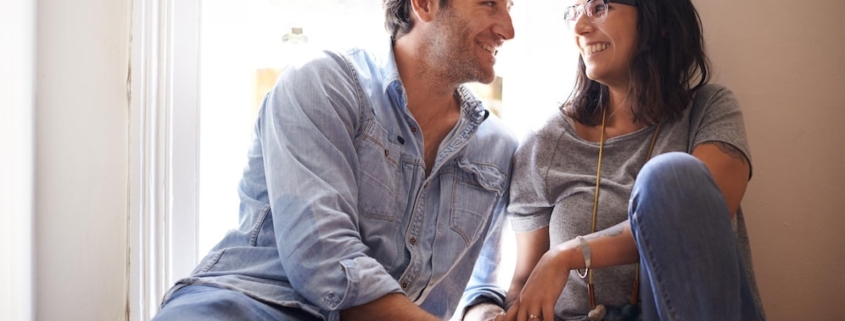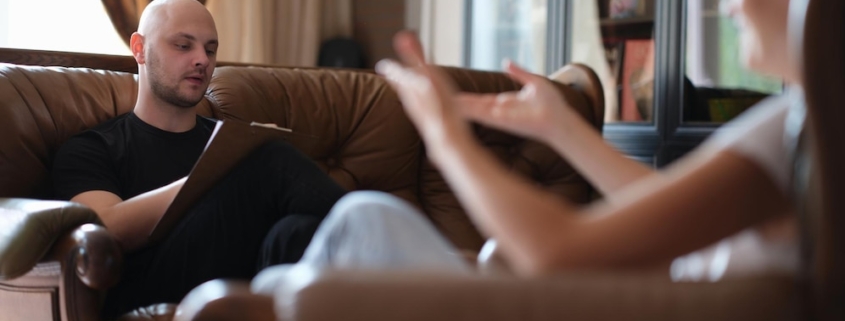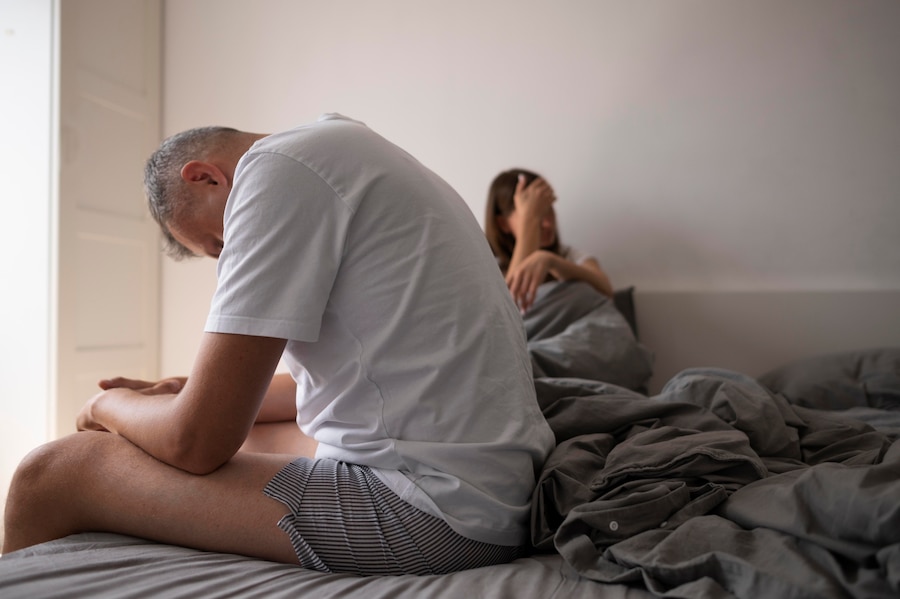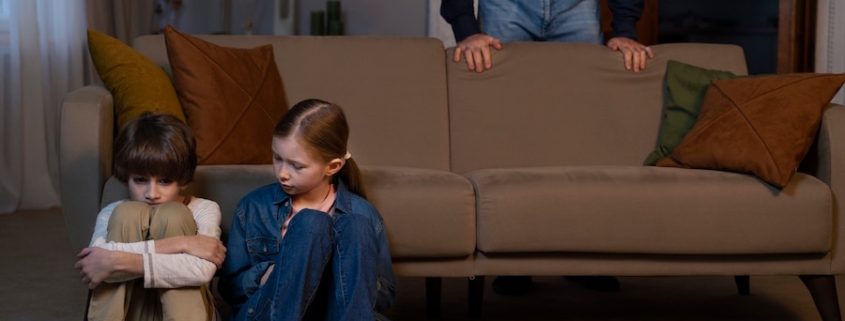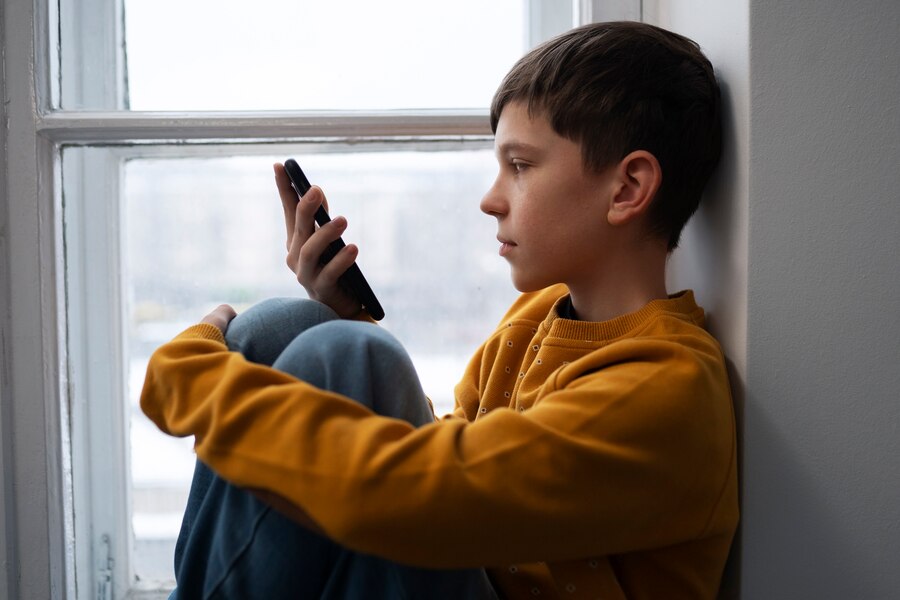Addiction is a formidable adversary that can wreak havoc on individuals and their relationships. It often isolates, devastates, and destroys the bonds that keep people together. However, in the midst of this chaos, love has the remarkable power to mend and heal. This article delves into the inspiring journey of a couple who faced the trials of addiction together and emerged stronger, thanks to their unwavering commitment and the support of couples rehab.
In the chapters that follow, we will explore the beginning of their journey, marked by the tender moments of falling in love and the harsh realities of addiction. We will uncover the pivotal moment when they decided to seek help and the transformative experience of couples rehab. Through therapy and mutual support, they learned to overcome challenges and rebuild a life rooted in trust, communication, and healthy habits.
Their story is not just about overcoming addiction; it is a testament to the resilience of the human spirit and the profound impact of love in the face of adversity. By sharing their journey, we hope to inspire other couples grappling with addiction to believe in the possibility of recovery and the healing power of love.
The Beginning of the Journey
Meeting and Falling in Love
It all started in a bustling coffee shop on a rainy afternoon. Emily and Jake, two souls wandering through the labyrinth of life, found each other unexpectedly. Emily was an aspiring artist with a vibrant personality, while Jake, a software engineer, had a quiet yet profound demeanor. Their connection was instant, as if they had known each other in another lifetime. The chemistry between them was palpable, and it wasn’t long before they were inseparable, spending countless hours talking about their dreams, fears, and everything in between.
The Struggles with Addiction
However, beneath the surface of their seemingly perfect relationship, both Emily and Jake were fighting their own battles with addiction. Emily’s struggle with alcohol had begun in her college years, a means to cope with the pressures of academic life and personal insecurities. Jake, on the other hand, had turned to prescription painkillers after a sports injury, and what started as a way to alleviate physical pain soon morphed into a dependency he couldn’t shake off.
As their relationship deepened, their addictions began to take a toll. What was once a source of joy and comfort became fraught with arguments, distrust, and emotional turmoil. Nights out turned into nights of heavy drinking for Emily, while Jake’s increasing need for pills led to financial strain and secrecy. They both knew they were spiraling, yet the fear of losing each other kept them from seeking the help they so desperately needed. It was a vicious cycle—one that threatened not only their relationship but their very lives.
Deciding to Seek Help
The turning point came one fateful night when Jake overdosed and had to be rushed to the hospital. The gravity of the situation hit Emily like a ton of bricks; the love of her life was on the brink of death, and she felt utterly powerless. As Jake lay unconscious, hooked up to various machines, Emily made a promise to herself and to him: they would overcome this together.
When Jake regained consciousness, he was met with Emily’s tear-streaked face and a resolve he had never seen in her before. They both knew that the road ahead would be challenging, but for the first time, they felt a glimmer of hope. It was then that they decided to seek professional help, not just individually but as a couple. They came across the concept of couples rehab, a specialized form of treatment designed to help partners navigate the complexities of addiction and recovery together. This, they believed, was their best chance at reclaiming their lives and their love.
Embarking on this new path was daunting, but Emily and Jake were determined to hold onto each other and fight for their future. Little did they know, this decision would mark the beginning of a transformative journey—one that would test their limits, but ultimately, bring them closer than ever before.
Couples Rehab: A Path to Recovery
What is Couples Rehab?
Couples rehab is a specialized form of rehabilitation designed to address the unique challenges faced by couples dealing with addiction. Unlike traditional rehab programs that focus solely on the individual, couples rehab provides a comprehensive approach that considers the dynamics of the relationship. It combines individual and joint therapy sessions, enabling both partners to work on their personal issues while also addressing relational aspects that may have contributed to their addictive behaviors. This dual approach fosters a supportive environment where couples can heal together, strengthening their bond and commitment to a sober lifestyle.
Therapy and Support Systems
The core of couples rehab lies in its therapeutic framework, which typically includes a blend of cognitive-behavioral therapy (CBT), individual counseling, and couples therapy. CBT helps individuals recognize and change negative thought patterns and behaviors, while individual counseling allows each partner to delve into personal issues such as trauma, mental health conditions, or past experiences that may have fueled their addiction.
Couples therapy, on the other hand, focuses on improving communication, rebuilding trust, and resolving conflicts. Through guided sessions, couples learn to express their feelings and needs more effectively, fostering a deeper understanding of each other’s struggles and perspectives. Additionally, support systems such as group therapy and 12-step programs offer a community of individuals who share similar experiences, providing mutual encouragement and accountability.
Overcoming Challenges Together
Recovery is a challenging journey, especially for couples who must navigate both individual and shared obstacles. One of the primary challenges is addressing the codependency that often develops in relationships affected by addiction. Codependency can manifest as enabling behaviors, excessive caretaking, or an unhealthy reliance on each other for emotional stability. Couples rehab helps partners identify and break these patterns, promoting healthier, more balanced interactions.
Another significant challenge is managing triggers and cravings. In couples rehab, partners learn coping strategies to handle these urges constructively, often through role-playing scenarios and practicing mindfulness techniques. By facing these challenges together, couples build resilience and a stronger sense of partnership.
Communication is another critical area of focus. Many couples entering rehab have experienced breakdowns in communication, leading to misunderstandings, resentment, and emotional distance. Through therapeutic exercises and open dialogue, couples rehab aims to restore and enhance communication, helping partners to reconnect on a deeper level.
Ultimately, couples rehab is about rediscovering and rebuilding the foundation of the relationship. It empowers couples to support each other in their sobriety journey, turning what was once a source of pain and struggle into a pillar of strength and mutual growth. By overcoming these challenges together, couples emerge from rehab not only with a renewed commitment to sobriety but also with a revitalized relationship, ready to face the future hand in hand.

The Road to a New Life
Rebuilding Trust and Communication
The journey to recovery is not just about overcoming addiction; it is also about rebuilding the foundational elements of a relationship that addiction often erodes. For many couples, trust and communication are the first casualties in the battle against substance abuse. In the case of our couple, they found that couples rehab provided a safe environment to address these deep-seated issues.
Through guided therapy sessions, they learned to express their feelings honestly and openly. Techniques such as active listening and “I” statements helped them communicate more effectively and empathetically. By fostering an atmosphere of mutual respect and understanding, they gradually rebuilt the trust that had been broken. Each small step forward in communication reinforced their commitment to one another and their shared goal of a sober, harmonious life.
Establishing Healthy Habits
Recovery is not a destination but a continuous journey that requires the establishment of healthy habits and routines. For our couple, this meant adopting new lifestyle choices that promoted physical, emotional, and mental well-being. They started by integrating regular exercise into their daily lives, understanding that physical activity could serve as a powerful coping mechanism against cravings and stress.
Nutrition also played a crucial role in their recovery. They began to educate themselves about balanced diets and the importance of nourishing their bodies with wholesome, nutritious foods. Cooking together became a bonding activity that reinforced their partnership and provided a sense of accomplishment and control.
Moreover, they participated in various wellness activities such as yoga and meditation, which helped them stay grounded and focused. These practices not only enhanced their individual well-being but also strengthened their relationship by providing shared experiences and goals.
Looking Towards the Future
As they embraced their new, sober lifestyle, the couple began to set their sights on future aspirations. They recognized that their journey did not end with overcoming addiction; it was just the beginning of a new chapter filled with opportunities for growth and happiness.
Together, they set both short-term and long-term goals. Short-term goals included continuing therapy sessions, attending support group meetings, and maintaining their healthy routines. Long-term goals involved rebuilding their careers, possibly starting a family, and finding ways to give back to the community that had supported them through their darkest times.
They also made plans to celebrate their milestones, understanding the importance of acknowledging and rewarding their progress. Whether it was a weekend getaway to mark a year of sobriety or small daily affirmations of love and gratitude, these celebrations became integral to their recovery journey.
In looking towards the future, the couple remained committed to each other and to their ongoing recovery. They knew that challenges would arise, but with the skills and support systems they had developed, they felt equipped to face them together. Their story is a testament to the power of love and partnership in overcoming even the most daunting obstacles.
Love Conquered Addiction
The story of a couple who faced the harrowing grip of addiction together and emerged stronger on the other side is a testament to the power of love, resilience, and mutual support. Their journey, marked by the initial bliss of falling in love, the dark shadows of substance abuse, and the courageous decision to seek help, highlights the profound impact of couples rehab in transforming lives.
Couples rehab provided them with a structured and supportive environment where they could confront their addictions head-on. Through personalized therapy sessions, robust support systems, and a shared commitment to recovery, they learned to navigate the complexities of addiction together. They faced numerous challenges, but their unwavering dedication to one another and to their sobriety allowed them to overcome these obstacles and grow closer in the process.
As they transitioned from the rehab facility to their new life, they focused on rebuilding trust and improving communication—cornerstones of any healthy relationship. They embraced new, healthy habits that reinforced their commitment to a sober lifestyle and allowed them to thrive individually and as a couple. Their journey did not end with their exit from rehab; rather, it marked the beginning of a hopeful future filled with promise and potential.
Their story serves as an inspiring reminder that recovery is possible, even in the face of profound challenges. It underscores the importance of seeking help and the incredible strength that can be found in partnership. Love, when paired with determination and the right support, truly has the power to conquer addiction.
For anyone struggling with addiction, or for couples facing this battle together, their journey offers hope and encouragement. It is a powerful example of how, with the right resources and a shared commitment to healing, it is possible to reclaim your lives and build a brighter, healthier future together.

FAQs
1. What does “Love Conquered Addiction” signify in the context of Couples Rehab?
- “Love Conquered Addiction” symbolizes the transformative power of love and partnership in overcoming addiction challenges. It highlights the inspiring journey of couples who support each other through the recovery process, ultimately triumphing over addiction together.
2. How does Couples Rehab incorporate the theme of “Love Conquered Addiction” into its treatment approach?
- Couples Rehab integrates the theme of “Love Conquered Addiction” by fostering a supportive and nurturing environment where couples can heal together. Through evidence-based therapies, experiential activities, and personalized treatment plans, couples learn to strengthen their bond and navigate recovery challenges as a team.
3. What role does love play in the recovery journey of couples at Couples Rehab?
- Love serves as a powerful motivator and source of strength for couples in recovery at Couples Rehab. It provides the foundation for mutual support, empathy, and commitment, inspiring couples to overcome addiction barriers and build a healthier, happier future together.
4. Can couples truly conquer addiction together at Couples Rehab?
- Yes, couples can conquer addiction together at Couples Rehab by embracing the principles of love, support, and mutual empowerment. Through therapy, education, and shared experiences, couples learn to navigate challenges, address underlying issues, and forge a path to lasting sobriety.
5. How does Couples Rehab help couples maintain a strong bond while overcoming addiction challenges?
- Couples Rehab offers specialized counseling and therapy sessions that focus on rebuilding trust, improving communication, and fostering intimacy within the relationship. By addressing the root causes of addiction and strengthening the couple’s bond, Couples Rehab helps couples maintain a strong and supportive partnership.
6. What are some success stories of couples who have experienced “Love Conquered Addiction” at Couples Rehab?
- Couples Rehab has numerous success stories of couples who have overcome addiction challenges and rebuilt their lives together. These inspiring stories highlight the resilience, determination, and love that couples bring to their recovery journey at Couples Rehab.
7. How does Couples Rehab support couples in maintaining sobriety after completing the program?
- Couples Rehab provides comprehensive aftercare support, including relapse prevention planning, ongoing therapy, and access to support groups. Additionally, couples are equipped with coping strategies and communication skills to navigate life’s challenges while maintaining sobriety.
8. Is the theme of “Love Conquered Addiction” reflected in Couples Rehab’s community and alumni support network?
- Yes, Couples Rehab’s community and alumni support network embody the spirit of “Love Conquered Addiction” by offering a safe and welcoming space for couples to connect, share experiences, and inspire each other on their journey to recovery.
9. How can couples seeking help for addiction start their journey with Couples Rehab?
- Couples interested in embarking on their recovery journey with Couples Rehab can reach out to our admissions team for a confidential assessment and to learn more about our program offerings. Our compassionate staff is dedicated to helping couples take the first step towards healing and transformation.
10. Why choose Couples Rehab for overcoming addiction challenges and strengthening your relationship?
- Couples Rehab offers a unique and specialized approach to addiction treatment that focuses on the healing power of love and partnership. With personalized care, evidence-based therapies, and a supportive community, Couples Rehab empowers couples to conquer addiction together and build a brighter future filled with love, health, and happiness.





